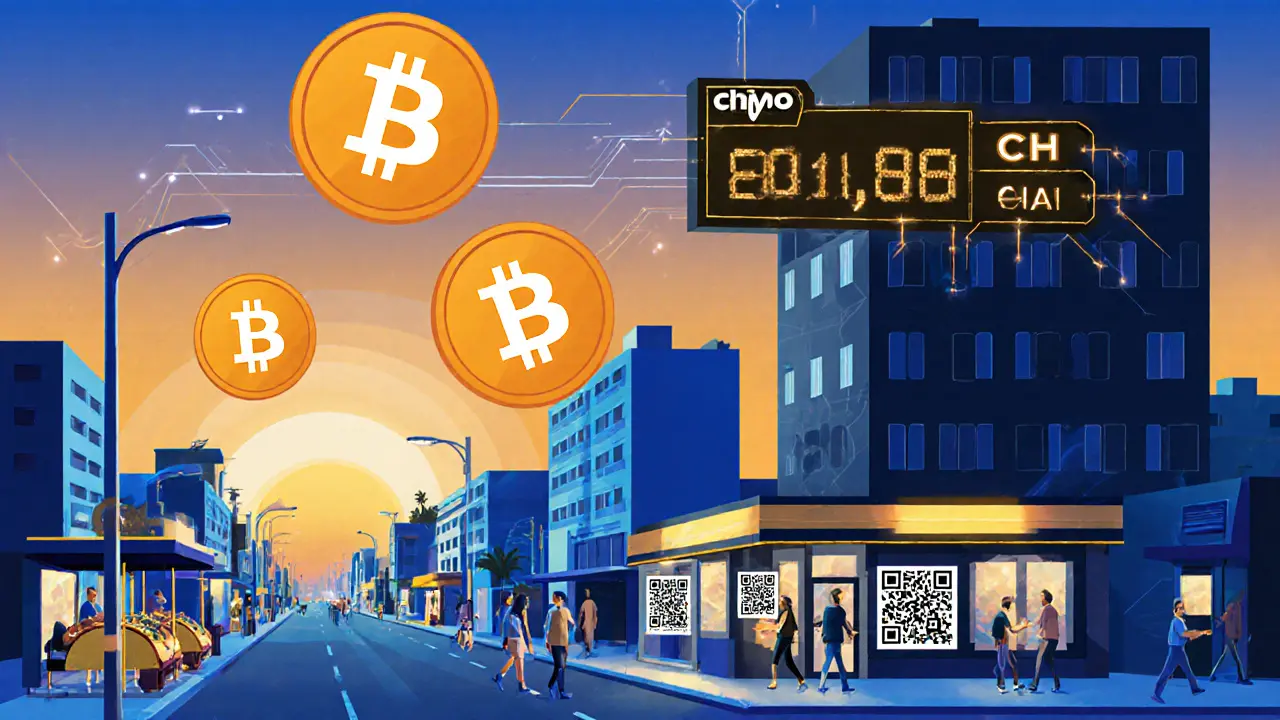El Salvador Bitcoin Remittance Fee Calculator
Calculate Your Savings
Compare traditional remittance fees (10%) versus Bitcoin fees (nearly 0%) for transfers to El Salvador.
El Salvador didn’t just try Bitcoin-it made it legal money. In September 2021, the country became the first in the world to give Bitcoin the same status as the U.S. dollar. The goal was simple: help the 70% of Salvadorans without bank accounts, cut the high fees on remittances, and break free from the U.S. dollar’s tight grip on their economy. At the time, it felt like a revolution. But by January 2025, that revolution was officially over-Bitcoin was no longer legal tender. So what went wrong? And why is El Salvador still buying more Bitcoin than ever?
Why Bitcoin? The Problem That Started It All
For decades, El Salvador’s economy ran on the U.S. dollar. Since 2001, the country gave up its own currency, the colón, to stabilize inflation and attract foreign investment. But that move came with a cost: zero control over monetary policy. When the U.S. Federal Reserve raised interest rates, El Salvador had no choice but to follow. Inflation, unemployment, and poverty stayed stubbornly high. And while the dollar brought stability, it didn’t bring access. Nearly 7 out of 10 Salvadorans had no bank account. Sending money home from the U.S.-a lifeline for many families-cost 10% or more in fees. That’s $10 lost on every $100 sent. President Nayib Bukele saw Bitcoin as the fix. No banks needed. No intermediaries. Just direct peer-to-peer transfers. He didn’t just want people to use Bitcoin-he wanted them to live on it. The government launched the Chivo Wallet, gave every citizen $30 in free Bitcoin, and mandated that all businesses accept it. It was bold. Unheard of. And it worked… at first.How It Worked (On Paper)
The plan had three big parts:- Legal tender status-Bitcoin could be used to pay taxes, buy goods, settle debts-just like dollars.
- Chivo Wallet-a government-built app with no fees, instant transfers, and Bitcoin-to-dollar conversion built in.
- Bitcoin City-a planned city powered by geothermal energy from volcanoes, where no taxes would be paid on Bitcoin gains.
The Reality: Few People Actually Used It
Here’s the contradiction: 82% of businesses accepted Bitcoin, but only 1% of remittances used it. Most Salvadorans didn’t want to hold Bitcoin. They didn’t trust its price swings. One day, your $100 payment is worth $105. The next, it’s $90. Who wants to be paid in something that can lose 15% in a week? People used Chivo Wallet to cash out Bitcoin into dollars immediately-then spent the dollars. The wallet became a bridge, not a home. Even worse, the system was clunky. Many older Salvadorans didn’t own smartphones. Internet access was spotty in rural areas. The Chivo app crashed often. Customer support? Nonexistent. People got frustrated. They’d rather use cash or a bank transfer-even if it cost more. By 2022, more Salvadorans had Lightning wallets (a faster Bitcoin payment layer) than bank accounts. That sounds impressive-until you realize most of those wallets were empty. They were set up for the $30 free Bitcoin giveaway, then never touched again.
The IMF Step In-And What Changed in 2025
The biggest threat to El Salvador’s Bitcoin experiment wasn’t public resistance. It was the International Monetary Fund. The IMF had warned from day one: Bitcoin’s volatility was a risk to national stability. When El Salvador asked for a $1.4 billion loan in 2023 to help rebuild after natural disasters, the IMF said yes-but only if Bitcoin was removed as legal tender. The government resisted. But by late 2024, the economy was under pressure. Inflation was rising. The dollar was strong. And Bitcoin’s price had dropped 60% from its 2021 peak. The IMF’s conditions weren’t optional. In January 2025, El Salvador quietly repealed the Bitcoin legal tender law. The change? Businesses no longer had to accept Bitcoin. Taxes could no longer be paid in BTC. The government stopped requiring banks to offer Bitcoin services. But here’s the twist: they didn’t ban it. Bitcoin became optional again-just like cash or credit cards.Why They’re Still Buying Bitcoin
If Bitcoin was a failure, why did El Salvador buy 8 more Bitcoin in March 2025? And why did they host PLANB Forum 2025-the biggest crypto conference in Central America-just weeks after ditching legal tender status? Because they’re not done with Bitcoin. They’re just changing tactics. The government still believes in blockchain. They still want to be a tech hub. They still want to attract foreign investors who care about crypto. So they kept the Strategic Bitcoin Reserve Fund-and kept buying. Their new goal? Not to make Bitcoin money, but to make El Salvador the Bitcoin warehouse of Latin America. They’re now focusing on:- Building data centers powered by volcanic energy for Bitcoin mining
- Attracting crypto startups with tax incentives
- Using Bitcoin as a reserve asset to hedge against dollar fluctuations



Author
Ronan Caverly
I'm a blockchain analyst and market strategist bridging crypto and equities. I research protocols, decode tokenomics, and track exchange flows to spot risk and opportunity. I invest privately and advise fintech teams on go-to-market and compliance-aware growth. I also publish weekly insights to help retail and funds navigate digital asset cycles.